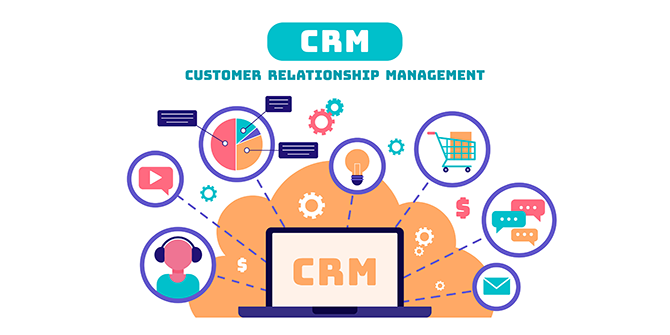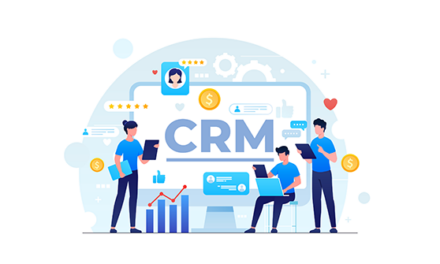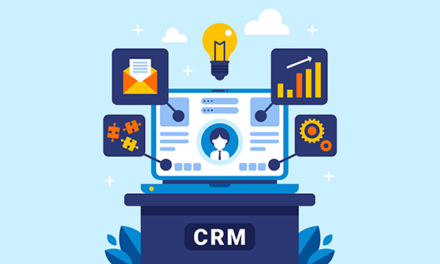Key Takeaways
- CRM customization is essential for consulting businesses to effectively manage client relationships, sales performance, and business operations.
- Assessing business needs, selecting the right CRM, and customizing it to specific requirements are key components of CRM customization.
- Ongoing customization and optimization are necessary to ensure the long-term effectiveness of a CRM system.
- CRM technology continues to evolve, and staying up to date with the latest trends and developments is essential for leveraging the full potential of a CRM system.
As a consultant, your business relies on building and maintaining solid relationships with your prospects.
However, managing customer interactions and streamlining business processes can be daunting, especially without the right tools.
And that’s where Customer Relationship Management (CRM) comes in.
CRM software can help you manage your interactions with prospects, streamline your business processes, and improve your bottom line.
By implementing a CRM system tailored to your consulting business, you can optimize customer engagement, automate sales, forecast revenue, and efficiently manage your projects.
But not all CRM systems are created equal, and customizing your CRM to fit your specific business needs is crucial for success.
In this article, we’ll explore how to customize your CRM for your consulting business, so you can build stronger relationships with your prospects, boost your sales, and streamline your operations.
So, get ready to elevate your client management, accelerate your sales pipeline, and boost your business growth!
Importance of CRM customization for consulting business
CRM customization is essential for consulting firms to tailor their CRM system to their needs. Every consulting business, its customers, workflows, and business processes are unique.
By customizing their CRM system, consulting businesses can enhance customer experience, optimize sales processes, and streamline operations.
Moreover, customization can help businesses save time and resources and increase overall efficiency and productivity.
Key components of CRM customization for consulting business
To successfully customize a CRM system, it is important to understand its key components. Here are the seven essential components of CRM customization:
Client management
Client management is a critical component of CRM customization that involves managing customer data and interactions. It includes managing contact information, communication history, customer preferences, and other related details.
By customizing client management in a CRM system, consulting businesses can have a centralized database of customer information that can be accessed and updated in real time.
It helps consultants to have a better understanding of their prospects and to personalize their interactions, leading to stronger relationships.
Sales automation
Sales automation is another important component of CRM customization, which involves automating sales processes. It includes lead tracking, pipeline management, deal management, and other related tasks.
By customizing sales automation, consulting businesses can automate repetitive tasks, streamline sales processes, and improve sales productivity.
Thus, it can help consultants focus on high-value activities, such as building client relationships and closing consulting deals.
Business processes
Customizing business processes is crucial to make a CRM system work effectively for consulting businesses. This component includes customizing workflows and automating sales, marketing, and customer support tasks.
By customizing business processes in a CRM system, consulting businesses can standardize processes, reduce errors, and increase efficiency. It allows consultants to save time and resources, leading to improved profitability.
Workflow management
Workflow management is an important component of CRM customization that involves designing workflows and automating tasks to increase efficiency and productivity.
By customizing workflow management, consulting businesses can create a standardized process for managing tasks, such as lead nurturing, client onboarding, and project management.
It enables consultants to streamline their operations and reduce the time spent on manual tasks.
Customer engagement
By personalizing customer engagement in a CRM system, consulting companies can enhance the customer experience through targeted marketing, effective customer service, and personalized communication.
Thus, consulting businesses can gain insights into customer preferences and behaviors, and use this information to create targeted marketing campaigns and personalized interactions.
It helps consultants build stronger relationships with their clients, increasing loyalty, and repeat business.
Data integration
Data integration involves integrating data from various sources, such as social media, website analytics, and email campaigns, to gain insights and make informed decisions.
By customizing data integration in a CRM system, consulting businesses can gain a holistic view of their customers and their interactions across various channels.
As a result, consultants can make data-driven decisions and improve their marketing and sales strategies.
Reporting and analytics
Customizing reporting and analytics in a CRM system is crucial for consulting businesses to track performance, identify trends, and make data-driven decisions.
This component includes generating reports and analyzing data related to sales, marketing, customer support, and other key areas.
Consulting companies can get insights into their operational performance, pinpoint areas for development, and make well-informed decisions to drive growth by customizing reporting and analytics.
Things to keep in mind while customizing the CRM for consulting business

Assessing business needs
When designing a CRM system specifically for consulting businesses, evaluating business needs is essential.
It involves defining business requirements, such as custom fields, lead tracking, customer segmentation, sales forecasting, marketing automation, project management, sales pipeline, deal management, and identifying key performance indicators (KPIs).
It also involves analyzing current CRM usage and effectiveness to understand areas for improvement. By assessing business needs, consulting businesses can create a customized CRM system that aligns with their unique requirements and supports their business goals.
Selecting the right CRM
Selecting the right CRM is crucial for consulting businesses to achieve their business goals. It involves evaluating various CRM systems and choosing the best fit for the business requirements and budget.
Key factors to consider when selecting a CRM include scalability, customization options, ease of use, security, and integration capabilities. Additionally, consulting businesses should consider the vendor’s reputation, customer support, and pricing model.
Consulting businesses can improve customer management, streamline operations, and drive growth by choosing the right CRM software.
Customizing CRM
Customizing a CRM system is a process of tailoring it to meet the specific needs of a consulting business. It involves creating custom fields, developing custom modules, modifying workflows, and integrating with other tools.
These customizations allow consulting businesses to capture unique data, automate manual tasks, streamline operations, and optimize sales and marketing processes.
By customizing their CRM, consulting businesses can enhance their customer engagement and improve their data management, which in turn can drive growth and increase productivity.
Configuring security and access
Customizing a CRM system for consulting businesses involves configuring security and access to protect sensitive data, ensure regulatory compliance, and prevent data breaches.
It involves defining user roles and permissions, securing data using encryption and authentication, and setting up access controls to restrict unauthorized access to the system.
Properly configured security and access controls help consulting businesses safeguard their data, maintain trust with their prospects, and prevent financial and reputational damage.
Training and adoption
Training and adoption are critical components of successful CRM customization for consulting businesses. Therefore, companies must create a training plan with resources and ongoing support to achieve acceptance.
It will help users learn how to use the system effectively while ensuring they understand its benefits. Additionally, consulting businesses must ensure that users remain engaged and adopt the CRM system.
By providing ongoing support, resources, and incentives, consulting businesses can increase user adoption and engagement, improving customer engagement, sales performance, and overall business success.
Maintenance and upgrades
Maintenance and upgrades are crucial for ensuring the smooth and efficient operation of the consulting businesses.
It involves monitoring the system’s performance to identify and address any issues that arise, updating and upgrading the CRM software to ensure it remains secure and up-to-date with the latest features and functionalities, and performing regular data backups and maintenance to prevent data loss or system failures.
By performing regular maintenance and upgrades, consulting businesses can minimize system downtime, improve system performance, and ensure that their CRM system continues to meet their business needs.
Conclusion
In conclusion, CRM customization is vital in enabling consulting businesses to manage better their prospect relationships, sales performance, and business operations.
It’s important to note that ongoing customization and optimization are crucial to ensure the long-term success of a CRM system.
As technology continues to evolve, starting a consulting business and staying up-to-date with the latest trends and developments in CRM technology is crucial to ensure they are leveraging the full potential of their CRM system.
By doing so, they can improve customer engagement, increase sales performance, and achieve a competitive edge in their industry.




